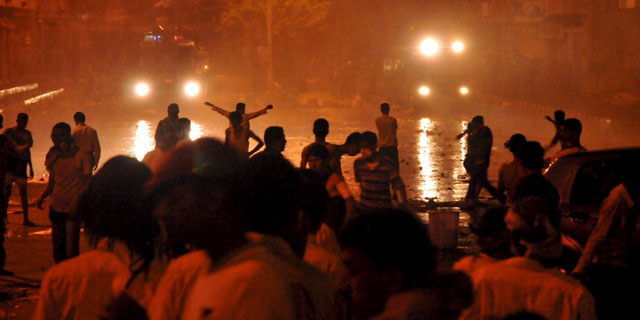It was a very fragile truce but trying to avoid another civil war in the poorest Arab country in the world, Yemen. However, the renewed fighting that have occurred in the capital, Sanaa, tribal groups and forces loyal to President Ali Abdullah Saleh, have broken any hope. "The ceasefire agreement has ended," has secured a Yemeni government official.
This cease-fire went into effect this weekend, after more than 115 people died in fighting between both sides in the capital, using machine guns, mortars and rocket-propelled grenades. The international community has put pressure on Saleh to sign the agreement reached by the Gulf countries with the opposition Yemeni and would open a transition process in China.
Treated in this way, to stop violent tension in Yemen and stop it from continuing to be home to militants from Al Qaeda. In fact, local government troops and take days fighting in the south of the country, particularly in Zinjibar, to stop various cells of Al Qaeda who have seized the coastal city.
According to the official news agency, 21 Yemeni soldiers were killed in these clashes when Yemen's air force dropped bombs on the city near the Gulf of Aden. Meanwhile, on Monday, there were several demonstrations in Taiz that ended with 21 other demonstrators dead. Opposition groups formed by tribal leaders, Islamists and leftists have accused Saleh of not doing enough to reduce the threat of Al Qaeda.
At least 320 people have died in fighting in Yemen since the protests began to demand an end to the 33-year rule of President Saleh. 


This cease-fire went into effect this weekend, after more than 115 people died in fighting between both sides in the capital, using machine guns, mortars and rocket-propelled grenades. The international community has put pressure on Saleh to sign the agreement reached by the Gulf countries with the opposition Yemeni and would open a transition process in China.
Treated in this way, to stop violent tension in Yemen and stop it from continuing to be home to militants from Al Qaeda. In fact, local government troops and take days fighting in the south of the country, particularly in Zinjibar, to stop various cells of Al Qaeda who have seized the coastal city.
According to the official news agency, 21 Yemeni soldiers were killed in these clashes when Yemen's air force dropped bombs on the city near the Gulf of Aden. Meanwhile, on Monday, there were several demonstrations in Taiz that ended with 21 other demonstrators dead. Opposition groups formed by tribal leaders, Islamists and leftists have accused Saleh of not doing enough to reduce the threat of Al Qaeda.
At least 320 people have died in fighting in Yemen since the protests began to demand an end to the 33-year rule of President Saleh.


No comments:
Post a Comment